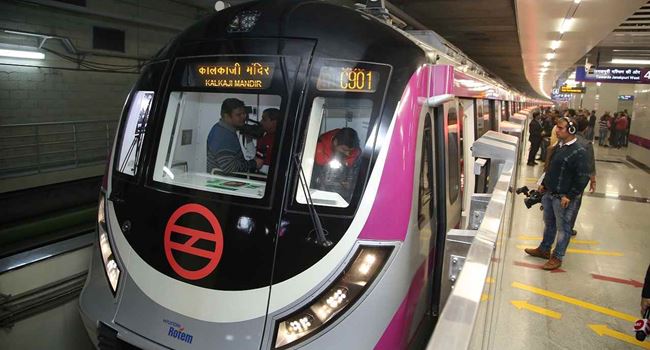International
India commissions first-ever driverless train

The Indian government on Monday inaugurated the country’s first-ever driverless train on Delhi Metro’s Magenta Line.
Prime Minister Narendra Modi made the disclosure via video conferencing while stressing that Delhi was the capital of a major global, financial and strategic power.
Modi also inaugurated India’s National Common Mobility Card.
“The inauguration of the first driverless metro train shows how fast India is moving towards smart systems. Today Delhi Metro is being connected to the National Common Mobility Card.
”A few decades ago, when the impact of urbanisation and the future of urbanisation were both clear, the country saw a different attitude.
”There was not much attention about the needs of the future, half-hearted work was done, confusion persisted.
“Unlike this, modern thinking says that urbanisation should not be seen as a challenge but an opportunity. An opportunity in which we can build better infrastructure in the country.
Read also: Police discovers two corpses during search for abducted Indians
”An opportunity through which we can increase Ease of Living. This difference of thinking is seen in every dimension of urbanisation,” he said.
The Prime Minister recalled that in 2014, only five Indian cities had a metro rail, but noted that metro rail services were available in 18 cities today.
“By the year 2025, we are going to expand it to more than 25 cities.” he said.
Modi also said that in 2014, only 248 km of metro lines were operational in the country, but noted that the lines had increased to more than seven hundred kilometres.
”These are not just figures, they are proof of Ease of Living coming in the lives of Indians.
“This is not just infrastructure made of brick and stone, concrete and iron, but are evidence of the fulfilment of the aspirations of the citizens of the country, the middle class of the country.
“Our government formulated the metro policy and implemented it with an all-round strategy.
”We insisted on working according to local demand, we emphasised on promoting local standards, ‘Make-in-India’ expansion, the use of modern technology,” he said.
Join the conversation
Support Ripples Nigeria, hold up solutions journalism
Balanced, fearless journalism driven by data comes at huge financial costs.
As a media platform, we hold leadership accountable and will not trade the right to press freedom and free speech for a piece of cake.
If you like what we do, and are ready to uphold solutions journalism, kindly donate to the Ripples Nigeria cause.
Your support would help to ensure that citizens and institutions continue to have free access to credible and reliable information for societal development.
























